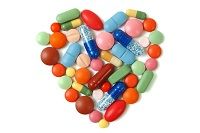Heart Disease: Too Much Aspirin?
Preventing cardiovascular disease (CVD) is an important goal in population health. But according to American Heart Association guidelines on primary prevention of CVD, recommending that all healthy people take aspirin to do that is not the way to go. In a new study in the Journal of the American College of Cardiology, however, Ravi Hira, MD and colleagues find that not all physicians have gotten the message. The researchers looked at the National Cardiovascular Disease Registry's Practice Innovation and Clinical Excellence registry. Of 68,808 patients, 11.6% were taking aspirin inappropriately, the team found.

Preventing cardiovascular disease (CVD) is an important goal in population health. But according to American Heart Association guidelines on primary prevention of CVD, recommending that all healthy people take aspirin to do that is not the way to go.
In an interview with HCPlive, NYU Langone Medical Center cardiology Jeffrey Berger, MD. discusses the issue.There are times when aspirin is appropriate, he says, but generally not for primary prevention.
In a new study in the Journal of the American College of Cardiology, however, Ravi Hira, MD and colleagues find that not all physicians have gotten the message. The researchers looked at the National Cardiovascular Disease Registry’s Practice Innovation and Clinical Excellence registry. Of 68,808 patients, 11.6% were taking aspirin inappropriately, the team found.
“More than 1 in 10 patients in this national registry were receiving inappropriate aspirin therapy for primary prevention, with significant practice-level variations,” they wrote.
Aspirin is appropriate only in patients with a 10-year CVD risk of greater than 6% and inappropriate if the risk is less than that.
It is also recommended for secondary prevention in patients with pre-existing CVD.
Based on the PINNACLE registry’s data, the team identified patients in 119 physician practices who were receiving aspirin They excluded those who were in need of secondary prevention or were taking other antiplatelet drugs.
Since aspirin is sold without a prescription, the authors believe its actual inappropriate use is likely higher than they found in the PINNACLE study.
In an accompanying editorial, Freek Verheugt, MD, said the study is valuable because unlink previous studies of clinical trials based on prescribing patterns in general practice, these data came from cardiologists offices.
Verheugt said aspirin is effective in primary prevention of CVD, but “it is associated with excess extracranial bleeding that, regardless of the baseline risk, seems to come close to its benefit.”
“Inappropriate use of aspiring should be avoided, especially in the younger patient population.” He cites a study that found that aspirin reduces the change of non-fatal heart attack by 18% but comes with a 54% increased risk of major extracranial bleeding. "For every 2 major coronary events shown to be prevented by prophylactic aspirin, they occur at the cost of 1 major extracranial bleed.
On the other hand, he writes, there is also growing evidence that aspirin protects against some cancers.
Further, “if aspirin is combined with other strategies that halve the risk of a major ischemic event (eg, as with statins) aspirin’s benefit is almost complete[ly] eliminated.” Statin prices have dropped dramatically and “the combination of aspirin with statins has become popular in primary prevention,” he noted.